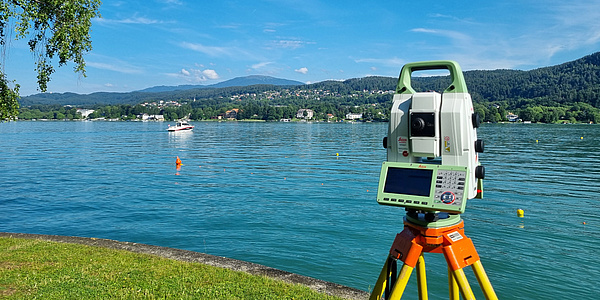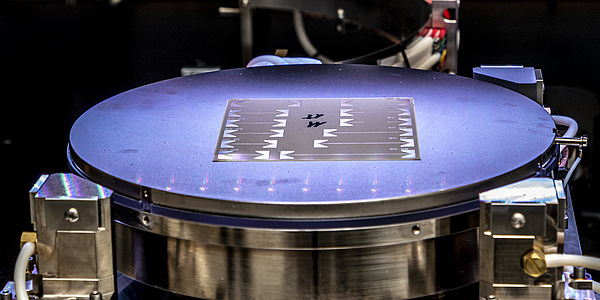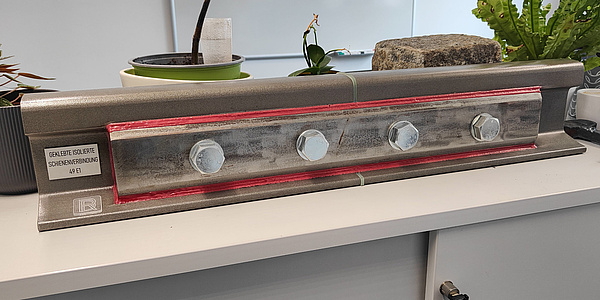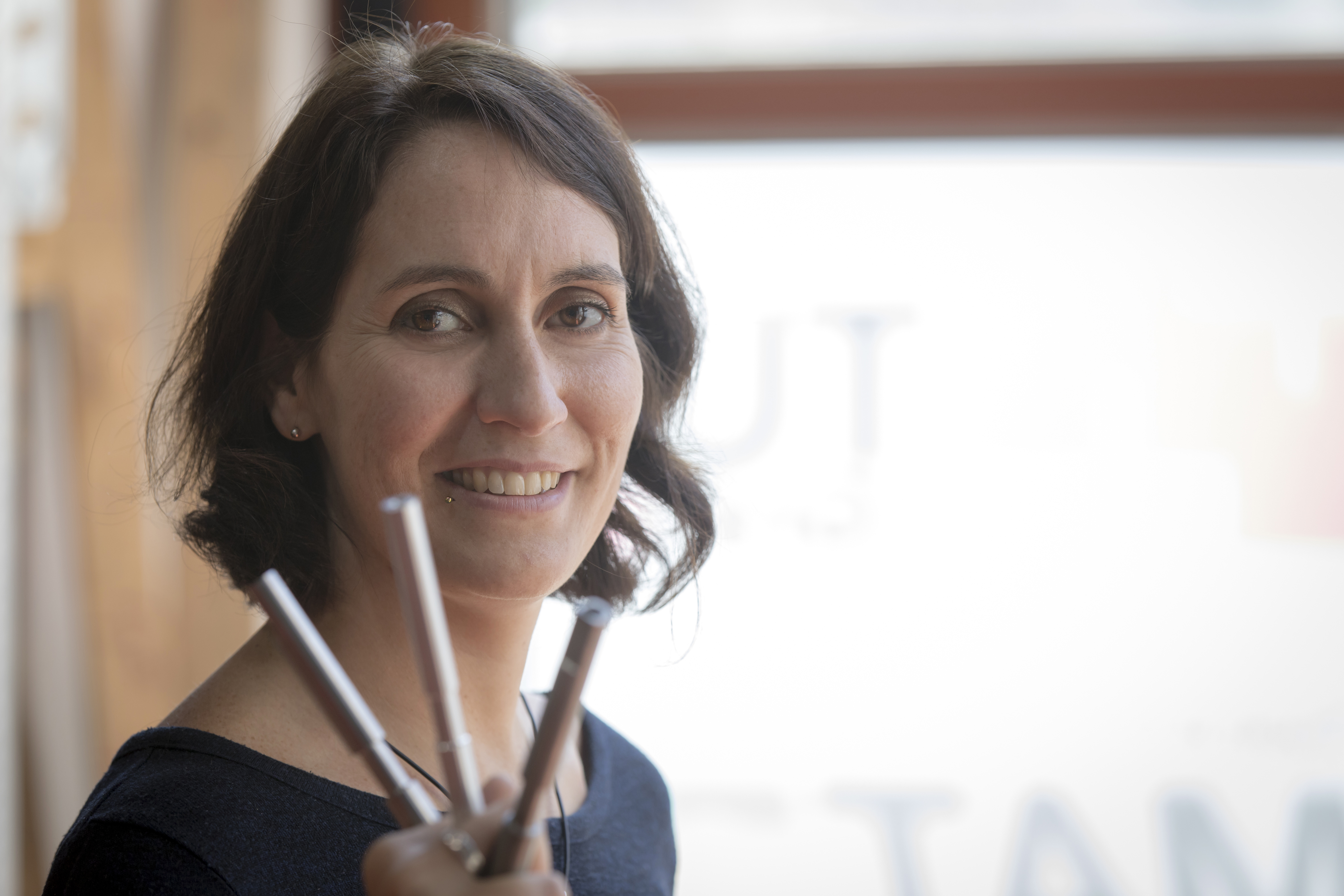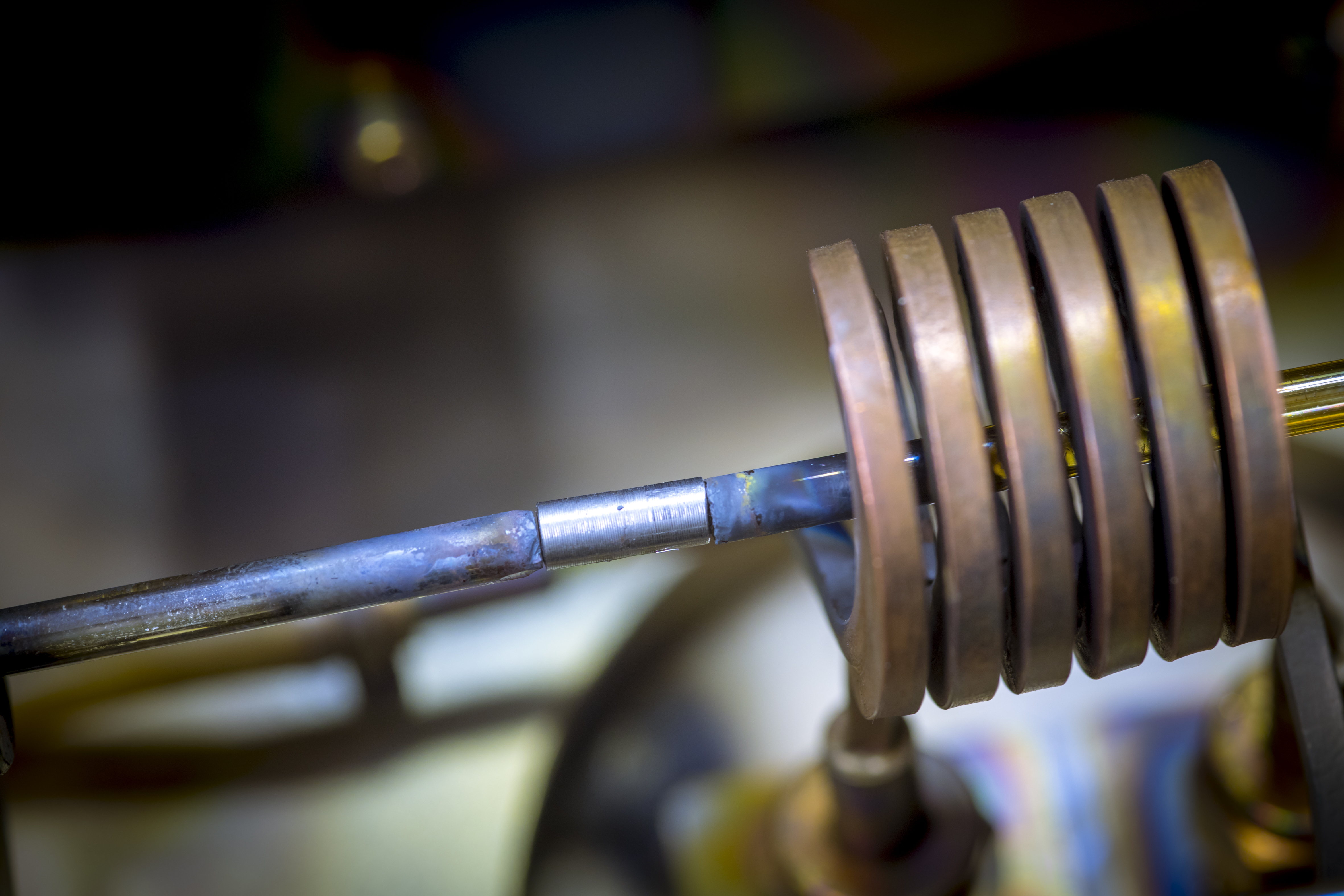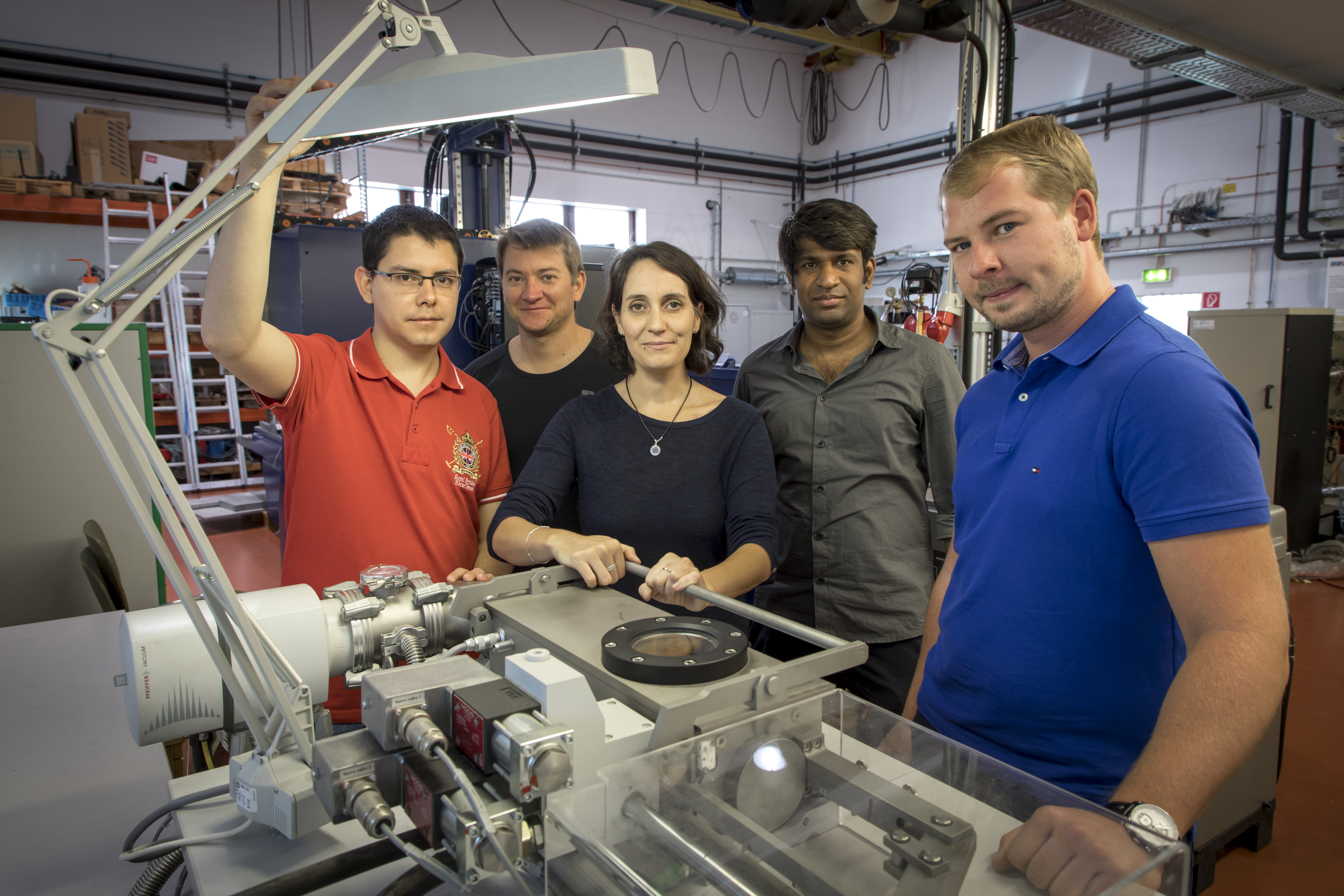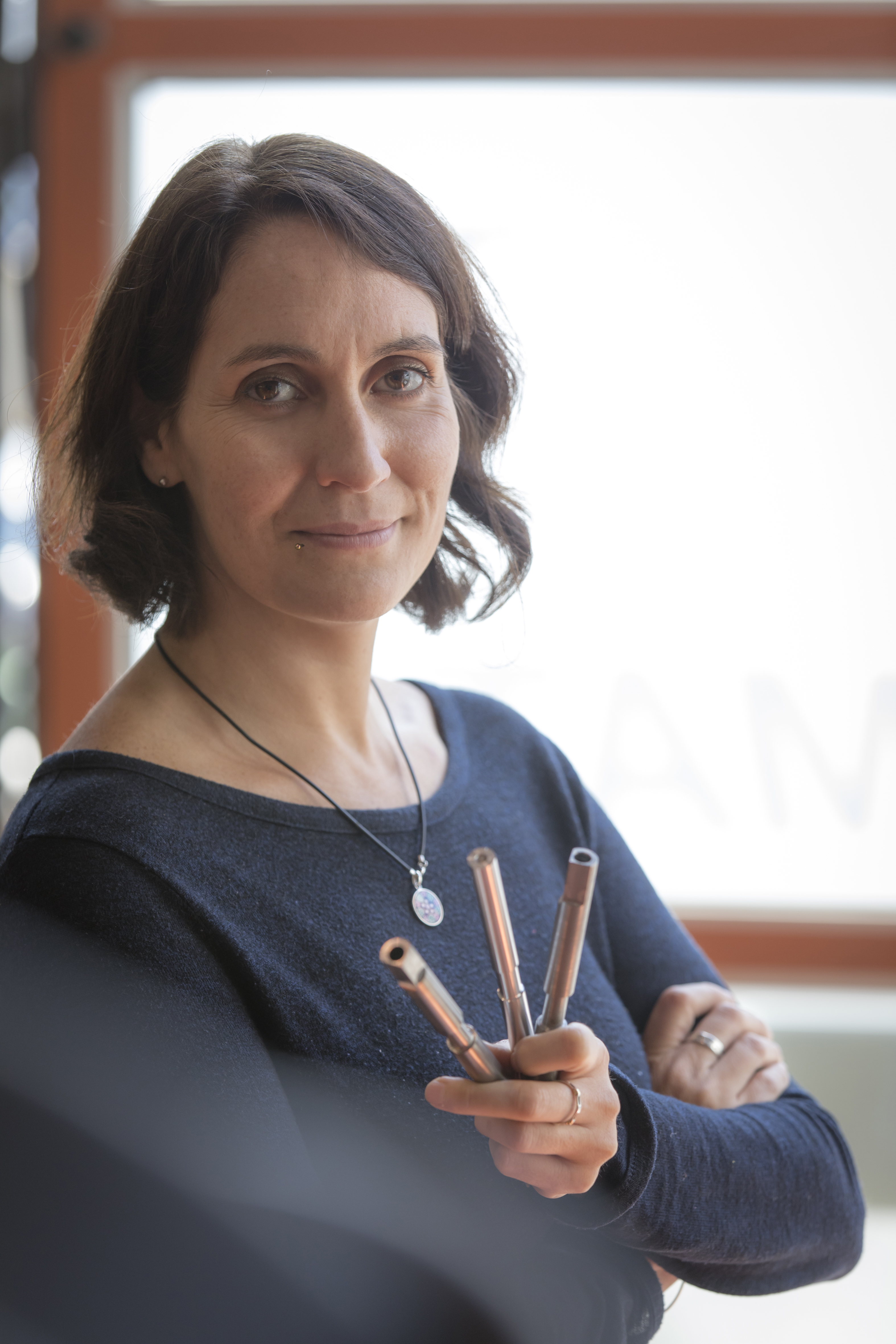New CD lab for high-performance alloys at TU Graz
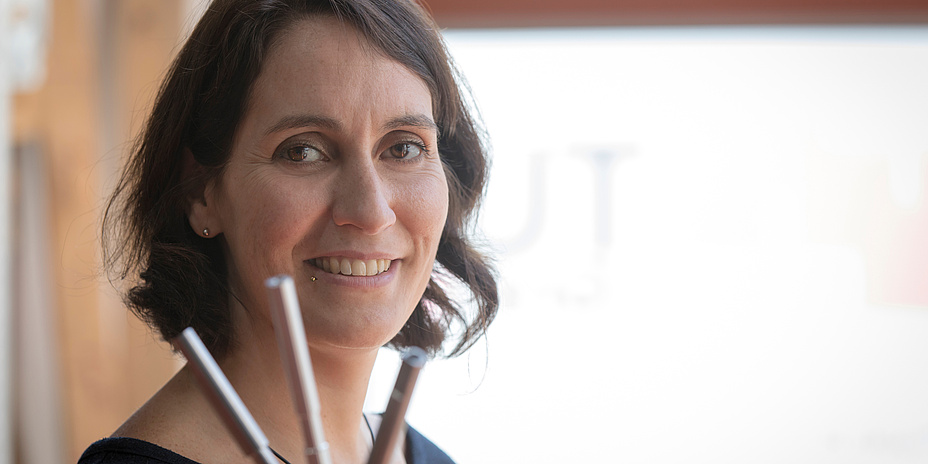
“We know that thermomechanical processes play an important role in the design of products made of high-performance materials. Nevertheless, controlling the desired properties of an alloy using specific process parameters and process routes is still a challenge for the industry and a hot topic in metal research,” says Maria Cecilia Poletti, materials researcher at TU Graz’s Institute of Materials Science, Joining and Forming. Maria Cecilia Poletti heads the “Christian Doppler Laboratory for Design of High-Performance Alloys by Thermomechanical Processing”, which was opened today, 31st October 2017, at TU Graz.
Economics minister Mahrer: Competitive advantages through basic research
“High-performance alloys play an important role for technological progress in lightweight construction and in the automotive sector,” says economics and science minister Harald Mahrer. “In this CD lab, the foundation for practical applications will be laid, from which important branches of industry in Austria will benefit. The interplay between science and economy provides a perfect basis to carry out research along the needs of companies.”Cast or wrought in the “alloy kitchen”
All kinds of alloys are exposed to thermomechanical stress in their production process: cast alloys in follow-up treatment and wrought alloys during processing. In the case of alloys which are cast in a mould, internal tensions develop while the workpiece cools down. This can lead to undesired bending of the workpiece, reducing performance. Heat treatment through heating up after quenching reduces the mechanical tensions in the microstructure of the workpiece and increases the strength of the material due to microstructural modifications. Wrought alloys are firstly cast, but are repeatedly deformed at high temperatures to give both a shape and essential microstructural modifications. The word “wrought” is related to processes where plastic deformation is developed – like forging, rolling or extrusion. Like kneading dough, the metal is deformed to give a final shape. “In the framework of the CD lab, we want to gain a deeper understanding of the development of the microstructure during thermomechanical processes. This is because the invisible form of the microstructure has the biggest effect on the thermomechanical properties of the part in use, for instance, in the landing gear of turbine disc of an aircraft,” explains Maria Cecilia Poletti. “Just like with a good cooking recipe, we want to know exactly what ingredients, quantities, temperatures, sequences and times are needed to obtain in the end a product with exactly the properties desired.”The focus of the new CD lab is on non-ferrous alloys, such as titanium, nickel or aluminium alloys for components and their processing steps. The CD lab team will characterise, describe and model the physical phenomena that occur in metallic materials during their industrial production and subsequent application, and will develop physically based multi-scale models that can be applied in general for various alloys and processes. To do this the researchers will use different methods, from experiments in the lab to modelling, and from microscopy to x-ray studies. The industrial partners for seven years are the metal producer Nemak, with head offices in Mexico and Linz, which produces cast-aluminium parts for the automotive industry, and BÖHLER Schmiedetechnik GmbH, with head office in Kapfenberg, which specialises in the field of titanium and nickel based wrought alloys. Around three million euros will go into the CD lab from the two industrial partners and the Christian Doppler Society for a period of seven years.
Active (and already opened) CD labs at TU Graz:
- CD-Laboratory for Design of High-Performance Alloys by Thermomechanical Processing
- CD-Laboratory for Model-Based Control of Complex Test Bed Systems
- CD-Laboratory Brushless drives for pump and fan applications
- CD-Laboratory for Fiber Swelling and Paper Performance
- CD-Laboratory for Semantic 3D Computer Vision
- CD-Laboratory for Lithium Batteries - Ageing Effects, Technology and new Materials
Kontakt
Assoc.Prof. Dr.techn.
TU Graz | Institute of Materials Science, Joining and Forming
Phone: +43 316 873 1676
Email: <link int-link-mail window for sending>cecilia.poletti@tugraz.at
